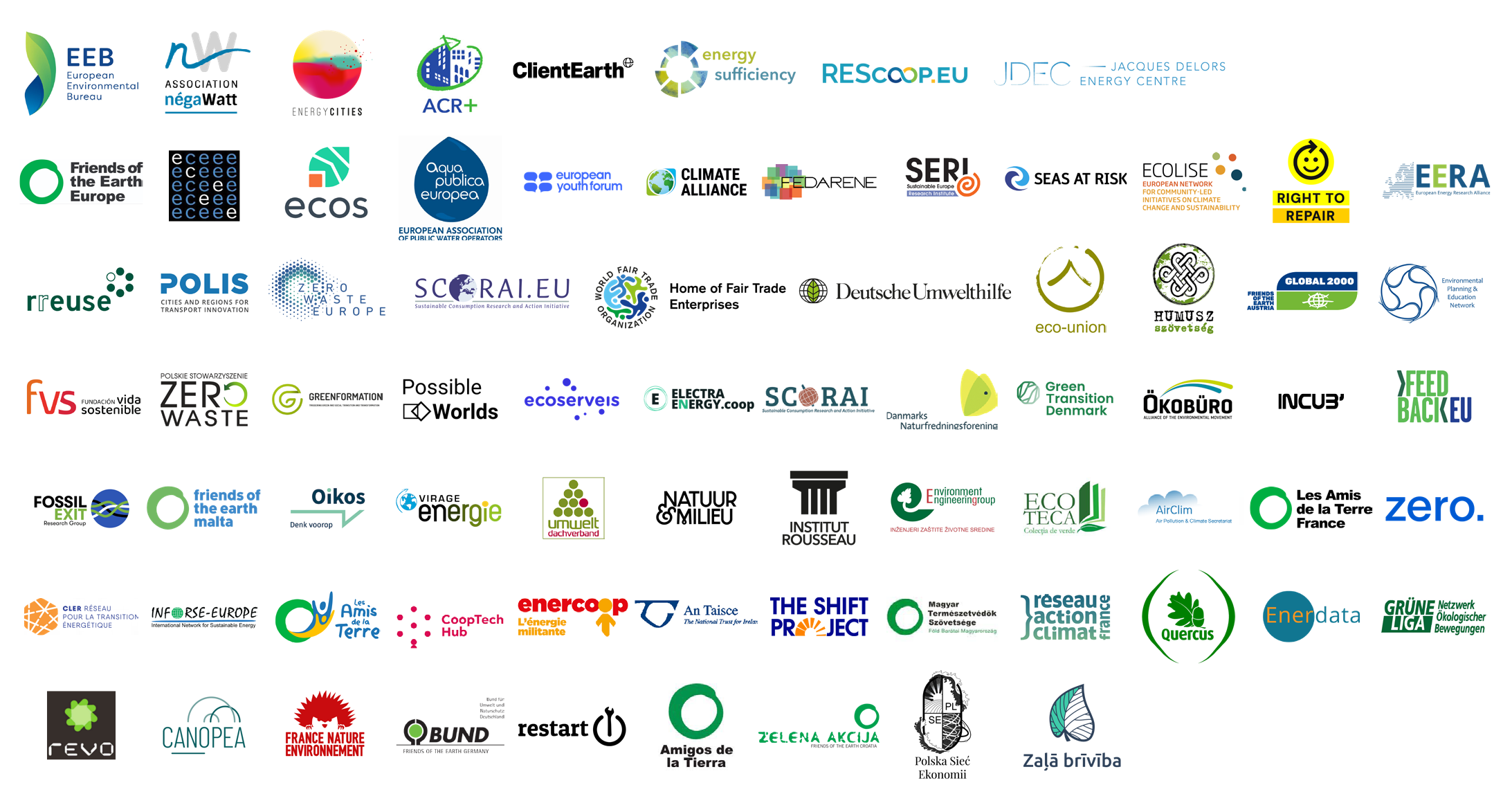News
A resilient and resource-wise Europe: Sufficiency at the heart of the EU’s future
EU leaders are seeking to maintain stability in an evolving era of ‘polycrisis’. The covid-19 pandemic, the Russian invasion of Ukraine, and a volatile geopolitical situation resulting in price increases have all contributed to instability. They have brought questions of security of supply, strategic autonomy, and industrialisation back to the top of the EU agenda. Yet so far, the EU has sought to address this agenda without seriously considering a critical lever at its disposal: managing Europe’s resource use. Faced with surges in cost of living, growing inequality of wealth and income, and unprecedented consequences of climate change, the EU must take advantage of all levers available – including resource-wise demand-side policy – to ensure its economy is fit to deliver well-being and protection for all.
The coming European elections and the next EU institutions’ mandate will be a critical time to decide how to shape a path to resilience: by continuing to increase our dependencies and inequalities, or to put demand management at the heart of the EU strategic agenda through a sufficiency-driven approach.
The IPCC describes sufficiency as policies, measures, and daily practices that avoid the demand for energy, materials, water, and land while delivering human well-being for all within planetary boundaries. Sufficiency provides infrastructure and legal frameworks to tailor demand to fundamental needs, making the most effective use of selected resources. By putting sufficiency at the heart of its policies, the EU can set itself on the path of a resource-wise and resilient global leadership, providing a more secure, fair, and less costly transition to net zero emissions.
When citizens are asked about policy priorities for climate action or even for the EU in general, they call for sufficiency: 40% of all measures recommended by Climate Citizens Assemblies across Europe are sufficiency-related. French citizens voted for sufficiency as their first recommendation in the convention on the future of the EU. Cities and regions are adapting their infrastructures and services to reduce their resource consumption, capitalising on the measures introduced to cope with the recent energy price crisis and droughts. This is aligned with science: the IPCC underlines the gap regarding demand-side options in national plans and recommendations from scientists, such as the European Scientific Advisory Board on Climate Change, are increasingly calling for demand-focused pathways which incorporate sufficiency.
But EU leaders have so far failed to acknowledge the role sufficiency policies can and must play to address the challenges ahead, making sufficiency the key missing lever in EU policy. Scenario modelling may partly explain this, as classical economic models have failed to properly reflect the potential and multiple co-benefits that low-demand scenarios highlight. While some parts of EU policy do integrate sufficiency aspects, the EU lacks an overall strategy and the reflex to integrate sufficiency cross-sectorally.
Despite the European Union’s abundant use of and access to energy and resources, we have not yet been able to ensure that all citizens can meet their fundamental needs or access key services, and growing inequalities are threatening to rip apart the social fabric of our democracies. The EU elections offer European political leaders the opportunity to better serve their citizens, and empower them while making society and the economy more resilient. Sufficiency must be at the heart of that agenda.
REScoop.eu, together with 74 European organisations from civil society, academia, cities and local authorities, businesses and public service operators, has launched a manifesto calling for sufficiency to become a central part of the EU’s strategic agenda.
